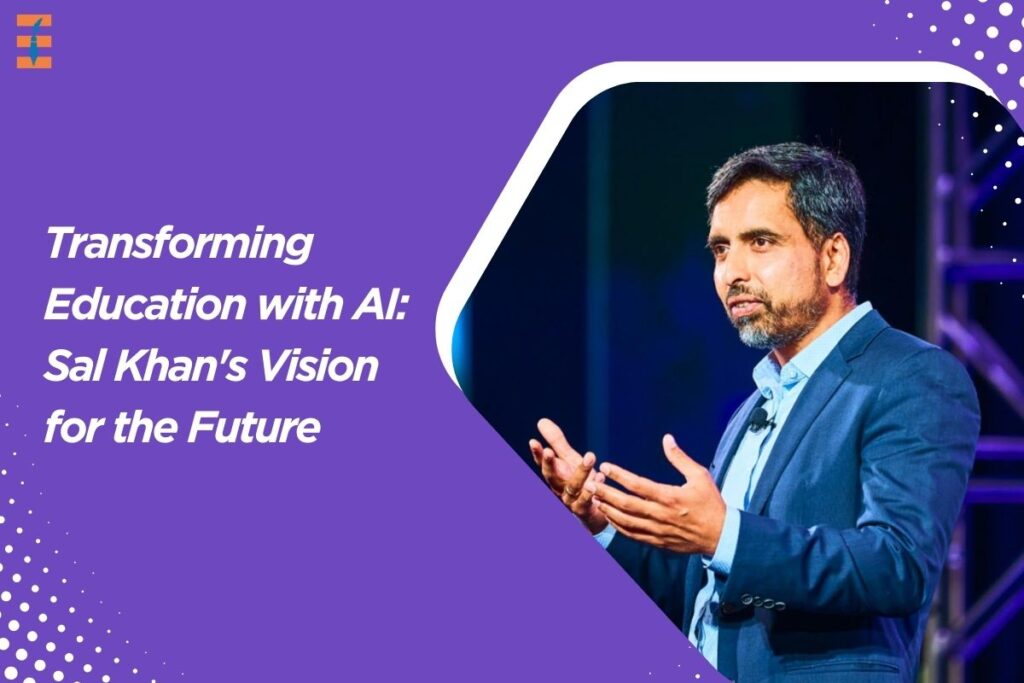When GPT-4 launched last week, it took the internet by storm. This new iteration of OpenAI’s model has reached an unprecedented level of lifelikeness, making conversations with AI feel almost like talking to a real person. The technology’s responsiveness and accuracy have opened up countless possibilities, one of the most promising being its application in education. Imagine every student having access to a personal tutor powered by this technology, capable of providing individualized instruction and support.
Sal Khan, a trailblazer in educational innovation, explores this idea in his latest book, Brave New Words. Sal is best known for founding Khan Academy in 2006, an online educational platform that has since educated over 150 million people worldwide. His book delves into the transformative potential of AI in education, presenting a future where AI significantly enhances both student outcomes and teacher experiences.
Sal Khan argues that AI can provide personalized learning experiences that are often unattainable in traditional classroom settings. Drawing from his work on Khanmigo, an AI-powered tutor, he illustrates how AI can deliver the kind of one-on-one guidance that most students lack due to resource constraints. As he points out, hiring a dedicated human tutor for every student is prohibitively expensive, but AI tutors can fill this gap effectively.
AI in the Classroom: A Game-Changer for Learning
Imagine being a seventh-grade student struggling with math. With an AI tutor, complex problems can be broken down into manageable steps, and personalized explanations are provided when you get stuck. This AI doesn’t just give answers; it offers tailored practice questions to reinforce understanding and boost confidence.
Moreover, AI can bring history to life by allowing students to interact with historical figures or literary characters. For instance, learning about Abraham Lincoln’s leadership during the Civil War becomes more engaging when you can have a “conversation” with the 16th president himself.
When it comes to writing assignments, AI can help overcome the initial hurdle of a blank page. It can suggest thought-starters, provide instant feedback on outlines, and offer real-time evaluations of drafts. This level of detailed, immediate assistance is something traditional educational tools can’t match.
The concern of whether using AI constitutes cheating is valid, but Sal Khan likens AI to other accepted tools like spellcheckers and Grammarly. When used appropriately, AI assists students in progressing past sticking points rather than doing the work for them. Many educators who initially banned AI in classrooms are now advocating for its use, recognizing its potential to enhance learning rather than replace it.
Personalized AI Tutors? Sal Khan on Transforming Education | Amanpour and Company
Supporting Teachers: AI as an Empowering Tool
Beyond student benefits, AI has the potential to revolutionize teaching by alleviating some of the burdens that educators face. Tasks like lesson planning and grading, which consume significant portions of a teacher’s day, can be efficiently handled by AI, allowing teachers to focus more on inspiring and supporting their students.
AI can also provide teachers with instant feedback on student progress, enabling a new level of personalized instruction. By automating routine tasks, AI frees up teachers to build stronger relationships with their students and address individual needs more effectively.
There are challenges to integrating AI into education, such as ensuring privacy and addressing biases, as well as providing the necessary technology to all students. However, the potential benefits make it a worthy pursuit. AI could be a powerful equalizer, providing high-quality education to students regardless of their circumstances.
During a recent visit to First Avenue School in Newark, New Jersey, where Khanmigo is being piloted, the positive impact of AI in the classroom was evident. Students and teachers alike are beginning to see the benefits, signaling a promising future for AI in education. Sal Khan’s Brave New Words offers a compelling vision of this future, making it a must-read for anyone interested in the intersection of technology and education.
Also Read: Brain-Based Learning: A Paradigm Shift in Education










